|
Many people love summer and favour it over other seasons. Especially in the Western world, summers mean beaches, barbecues and letting good times roll. In Chinese medicine and qigong, summer has a similar association with enthusiasm, laughter and love. It is associated with the element of fire, which is like the sun: bright, warm and expansive. It relates to excitement, stimulation and love – qualities that most people find attractive and life-affirming. But in the Chinese Five Element cycles, no element is greater or less than another. While summer and its associated element of fire generally reflects what we consider to be positive qualities, it can – like any of the elements in the cycle – become imbalanced and destructive. How can we harmonise with these summer months and make the most out of them? By understanding the characteristics of summer's element of Fire, and balancing its destructive qualities so that they don't burn us out but rather warm, nourish and awaken our capacity for love. 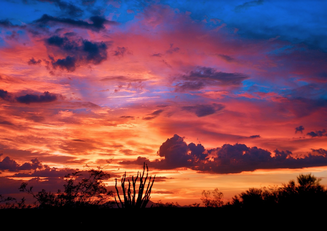 My childhood was spent in Tucson, Arizona – home of the Sonoran Desert. Summers in Tucson were ridiculously hot. Between June and September, temperatures regularly soared to a blazing 110 degrees Fahrenheit (43 degrees Celsius). Despite walking outside and feeling like I could bake into a piece of dried fruit, like all children, I loved summers. Summer meant time off from school, holidays and fun. In Tucson, summers also brought the monsoon rains. These heavy, seasonal thunderstorms would quench the southwestern desert’s insatiable thirst, replenishing groundwater and spurring growth. They also gave rise to the most dramatic and glorious sunsets imaginable. A typical monsoon storm would start with crackling late afternoon thunder followed by fierce bolts of lightening that split the evening skies. This was followed by short rainfall that would pound down the dry, cracked earth. After these storms the desert was left smelling spicy, tangy and sweet. The skies would also be painted rich hues of pink, purple and orange; it was as if the monsoon carried the desert’s heat and fire from the earth and lifted it into the evening skies to finish burning. ‘The castle grounds were gleaming in the sunlight as though freshly painted; the cloudless sky smiled at itself in the smoothly sparkling lake, the satin-green lawns rippled occasionally in a gentle breeze: June had arrived’. ― J.K. Rowling Now that I live UK, I still love summer, but mainly because it offers a balance to England’s notoriously long, dark, winter months. Summers in Britain are true to Rowling’s depictions of satin-green lawns and gentle breezes. Pleasing temperatures typically waltz from mild to warm. Daylight hours stretch gently into the late evening, with sunsets as late as 10pm. Occasionally, a heat wave strikes. Yet even when the temperatures rise to sweaty and uncomfortable levels, Brits like to joke that they are still not allowed to complain. Here, at least, heat is always considered a blessing. Summers in Beijing were often a reminder of the importance of balance. When I lived in Beijing in the ’90s, I remember summers as carefree and easy. Very little seemed to happen in Beijing during the summer. People sat around (or squatted) on street corners fanning themselves. During the hottest points of the day, any space of shadow was often occupied by someone napping. Back then, summers also came with a sense of thrill and adventure. China was starting to open up to the West, and many young Chinese artists, musicians and students were eager to mingle with expatriates. Rock concerts were officially banned, bars non-existent, and clubs illegal. There was one ‘disco’ in town called Juliana’s at the Lido hotel. Expatriates were allowed in, but Chinese were not. Summer nights usually meant prowling down night markets or searching out an ‘underground’ concert. Yet if I am true to my memory, the primary focus of any Beijing summer day was a desperate search for air conditioning or a pool. Summers in the capital were hot and sticky. Only a few places at that time offered air conditioning: large, Western hotels, and one floor of a department store in downtown Beijing. This 5th floor was famous as it allowed ballroom dancing to Western pop music such as Michael Jackson and George Michael. The only pool open to the public then was at the Friendship Hotel. My friends and I often sweated our way across town on our Flying Pigeon bicycles to find respite from the suffocating and debilitating heat. Beijing in the 1990’s was also a time when bicycles ruled the streets. Though free-market drives and economic reform had begun in the late ‘80s, few people had experienced its benefits or effects. As such, there were very few cars on the street. I remember when I first started riding my bike, I rode quickly and often sped past everyone else. Then I would overheat and feel terrible. Very quickly, I understood that the Chinese attitude toward riding in the heat was to slow down. People peddled at a leisurely pace, riding calmly and steadily to wherever they needed to go. Much has changed in Beijing since the early 1990s, including the pace of life and response to summer heat. Most buildings today have air conditioning. Nearly everyone is in a rush to get places. Instead of riding their bicycles, which would probably get them to where they need to go faster, most chose to face the heavily polluted, snarled and slow-moving traffic congesting the roads. Today the constant demand for productivity and activity throughout the height of summer is leading to increased stress, anxiety and exhaustion. As a result, many Beijingers – and Chinese in general – are becoming agitated and exhausted. 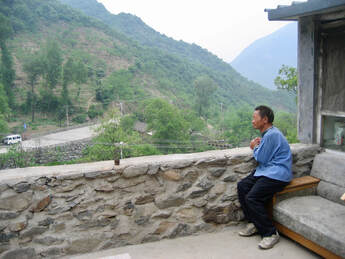 In the village of Sancha, where I rented a weekend home, rural Chinese life had yet to change. Farmers would often be up early to work the fields and finish before 9 am. They would then rest by a stream or somewhere in the shade until late afternoon, when they would resume work. It was a rhythm and way of life lost to most living in cities that I appreciated and continue to see value in acknowledging. Whenever I had a chance to escape the city and head to the mountains of Sancha, I quickly felt my summer and fire energies come back into balance. So how, then, can we learn to relax and enjoy good times – whether that be in the season of summer itself or within the peak of a day – without the negative consequences of feeling restless or anxious? According to qigong and Chinese medicine, we can look to fire’s qualities when in balance. Fire in balance nourishes, uplifts and enlivens us rather than burns us out. Fire in the Chinese Five Element Theory 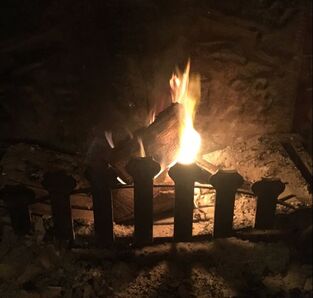 If Spring’s wood growth sends forth blossoms, then Summer’s fire matures this growth. It relates to ripening, fulfilment and the pinnacle of yang energy. In our life cycle, fire correlates to the years we mature into adults. As our physical height and stature steadies, our growth is directed toward deepening and enriching our relationship with ourselves and with others. In our fire years, we ideally build our communities of friends or family, meet a partner, or discern what it is that we most love to do or makes us most happy. Openness is also an important quality of fire. With balanced fire, we learn to respond skilfully to those who give us love and warmth and open to qualities of love. We live in a world where love is overly associated with romance. This makes discovering the beauty of other types of love, such as love between friends or a deepening love for nature, elusive. It is universally given love that begins to kindle warmth, ease and what Chinese medicine and qigong refer to as the ‘divine spirit’, or shen. Shen animates our life, bringing qualities of laughter and joy to the way we live. It also begins to awaken in the summer months as the heart qi rises. Openness and love are not always available to us though, and this is understandable. If you are reading this, chances are you are old enough to have been hurt deeply. With hurt, we close down to love and to fire’s sources of warmth. This is natural, and thankfully in qigong and Chinese medicine, any tendency to close down, is not viewed as a permanent condition, but rather as a deficiency that can be met by nourishing and supporting our body’s innate need for fire. Since learning about qigong and Chinese medicine, I have noticed that on the numerous occasions when I have been devastated and feel like my heart has shattered into a thousand pieces, remembering this perspective has helped me regain my bearings and start to open once more to all that life offers. Through qigong and other practices such as acupuncture or herbs, we can gradually rekindle our fire and our capacity for love. This is done by providing the right conditions and patiently nourishing our constitutional fire back to a healthy, strong flame. It is important to remember, however, that fire – like all the elements – is a powerful force. It can keep us warm but also scorch and burn. It is a tool that our species has learned to use and apply to our evolutionary advantage and development, but we know that it must be contained so as not to burn down all that we build, such as our livelihoods, communities and homes. Fire therefore needs boundaries to help it be directed and put toward good use. Fire is both a positive and destructive force. Dragons, for example, have historically been symbols of the destructive nature of fire in the West. Their fires represent chaos, evil and wrath (fortunately films such as How to Train Your Dragon that show how dragons are actually kind, loyal, misunderstood creatures have dispelled such lopsided notions!). In China and the East, however, dragons are auspicious, spiritual creatures. While prone to drama, dragons symbolise power, strength and fortune. In many Chinese dynasties, dragons were a symbol for the emperor. In qigong and Chinese medicine, we want to build and maintain a steadily burning flame that keeps our body and heart warm. This will enable us to experience an inner radiance that allows us to feel more open and relaxed. For example, with good fire, we may be inclined to spend more time with people we like and naturally wish to be social with them, and we may develop more caring and compassionate relationships with ourselves and with others. So how do we begin this? First by recognizing and realigning with fire’s natural inclination to move toward an extreme, and reign it in gently. Working to meet maximum yang In Chinese, there is an expression, wuji bifan. This means that when things reach their extreme, they naturally move in the opposite direction. The fire element is an expression of maximum yang. This means that within the cycle of creation, we reach a peak and maturity. After the surge of rising energy of wood’s growth, summer is a season where spring blossoms begin to mature. As crops ripen, plants no longer strive to grow upwards like a young teen but rather start to settle into their size and come of age. A fullness has been achieved. Yet just as this fullness is reached, it begins to fall away. This is the movement back in the opposite direction. This movement toward an extreme and back again generates and sustains balance. It is fire to water, summer to winter, Heaven to Earth. It is the man recognising the light of the sun because there is rain and night. These ongoing movements are represented by the presence of yin within yang, and yang within yin. In the yin and yang symbol, yang is light and yin is dark. Within the lightness of yang, however, is always the seed of yin, and likewise within the darkness of yin, the lightness of yang is always present. Understanding this and orientating our lives toward this ongoing movement toward wholeness is the underlying intention behind all forms of qigong practice. If we apply this model to our experience of summer and fire, we can learn to enjoy moments of excitement and stimulation without letting them turn into something excessive. We can begin to pay attention to when our fire burns so much that it causes over-agitation and overstimulation – qualities that can lead to feeling manic, restless, agitated, anxious and burnt-out. We can also do qigong practices to support stillness and calm if we are feeling restless and agitated, or fuel and fan our fire if it has nearly gone out. In other words, we can begin to move in the opposite direction before we cause our body or mind stress, harm or injury be reaching our extremes. We can also then be in the world in a brighter, vibrant and more loving way.
3 Comments
Rosie
1/30/2020 04:19:51 pm
What an insightful blog post, I love it! I came across this whilst looking to see if you had any tai chi videos after following your “flows” on Movement for Modern Life. You have a very calming presence and your videos are very easy to follow. Thank you!
Reply
Sheila A Bishop
8/25/2020 02:44:16 pm
I've just discovered 'Qigong' and have been practicing now for about 3 months. I found your site looking for a new routine. Love the 5 elements theme. Coincidentally, I took a short hike this weekend in the mountains and came across some bear scat which I had never seen. This morning I found your routine using the "Bear" and felt this was an omen for me. Thank you!
Reply
M. Dinneen
12/19/2023 01:47:38 am
Your Mom was deadly(that means the best ever)(in Irish speak)
Reply
Your comment will be posted after it is approved.
Leave a Reply. |
AuthorTeacher, writer, lover of movement and meditation who lives with her husband, dog, three cats, 6 chickens and 10,000 bees. Archives
December 2022
Categories
All
|
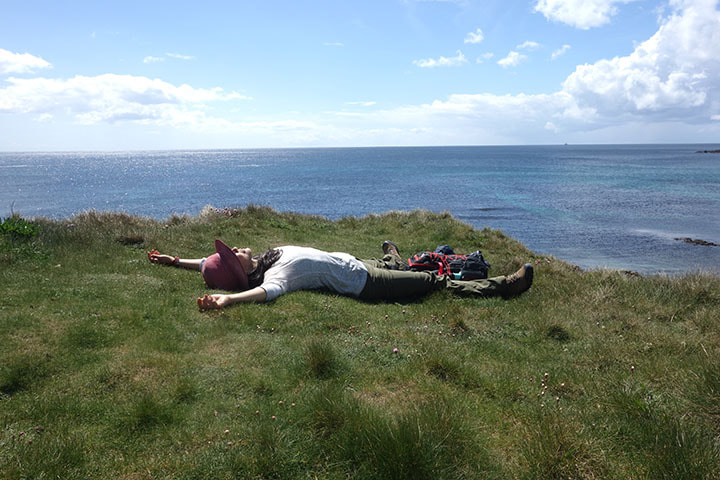
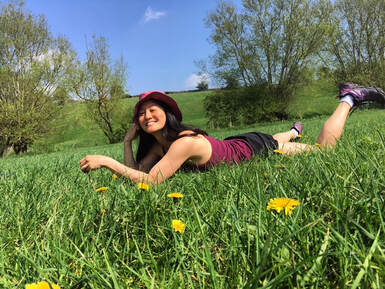
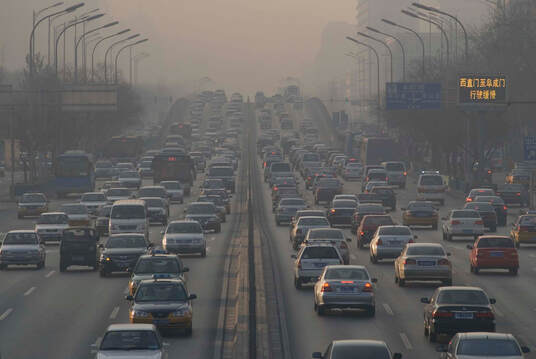
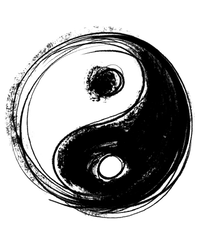
 RSS Feed
RSS Feed